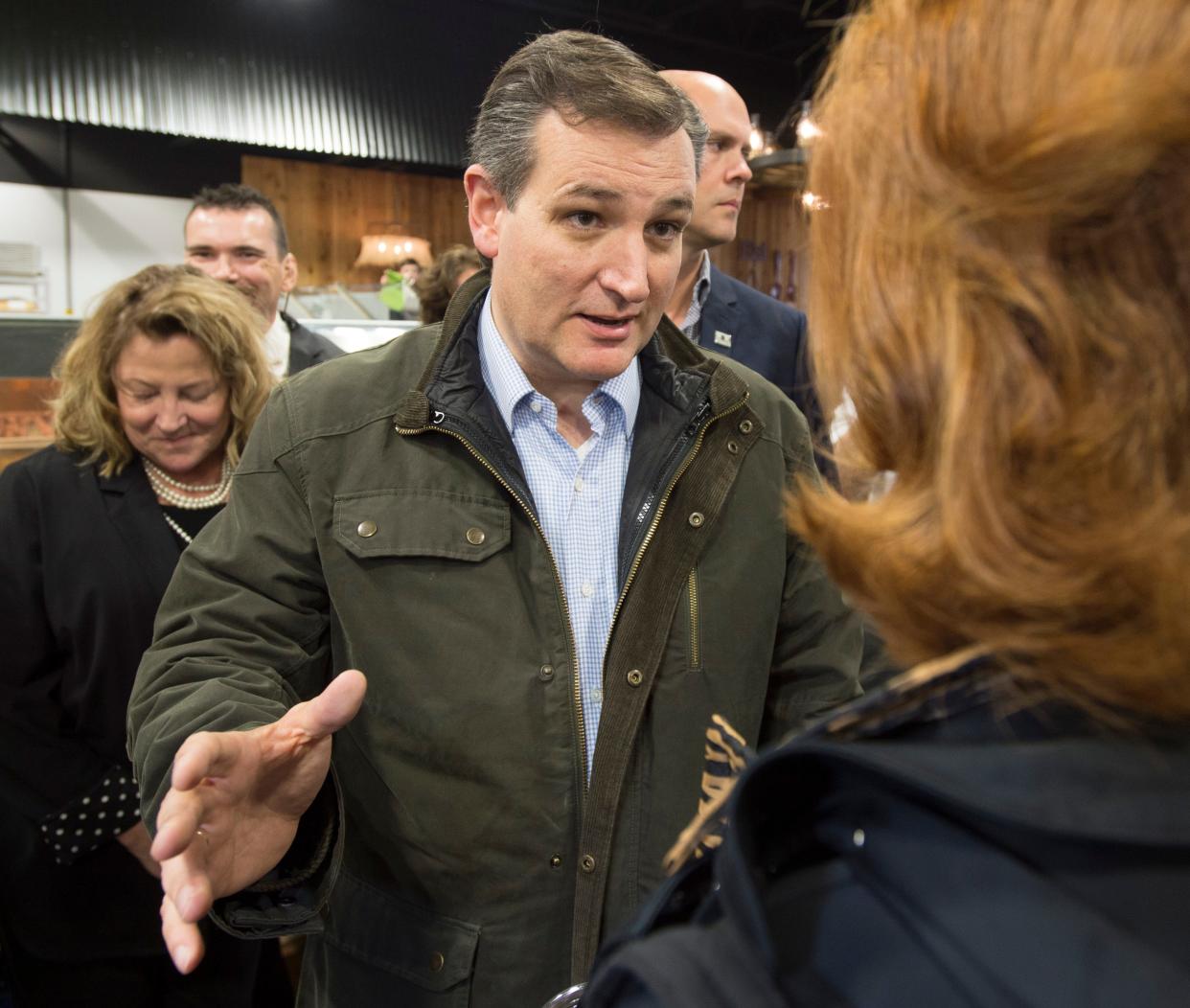Colwell: Tuesday's primary could draw national attention, but nothing like 2016.

Indiana’s presidential primary could draw some national attention, even though the results Tuesday will mean nothing in terms of selecting the nominees.
There certainly won’t be national news of the magnitude of eight years ago, when Donald Trump ended the last chance of the “Stop Trump” movement, solidly defeating Ted Cruz and winning all 57 delegates at stake in the state’s Republican primary.
Now, there will only be a look at percentages in the Republican primary and analysis of what, if anything, it means for November if Nikki Haley gets a significant protest vote.
While both Trump and President Joe Biden long ago won more than enough delegates for nomination, their names will be on the Indiana ballot Tuesday — Biden unopposed in the Democratic primary; Trump listed along with Haley, who quit campaigning two months ago, on the Republican side.
Haley qualified for the Indiana ballot before she was clobbered by Trump in the March 5 Super Tuesday primaries and suspended her campaign.
More Colwell: The choice is clear, even if it's not an ideal one.
Since Haley is out of the running, votes for her in Republican primaries are seen now as indication of unhappiness with Trump and a sign of possible defections from him in the fall.
The recent Pennsylvania Republican primary results were regarded as troubling news for Trump, with 155,000 voters —16.5% of the GOP turnout — declining to vote for their presumptive nominee and instead picking Haley.
It seems unlikely that Haley will get a percentage that high in Indiana, where Trump has been so popular with Hoosier Republicans in his two presidential races.
Even if she did, it wouldn’t mean as much as that showing in Pennsylvania, a key state in determining the winner in the Electoral College. Republican defections there could be decisive. Indiana, however, is listed in all projections as in the Trump column for sure in the fall.
Signs of defections here would be viewed not in terms of suggesting some monumental upset in the fall in Indiana, but as an indication that Trump’s base might not be as solid nationally if slipping even in Indiana.
What if Haley’s total isn’t in double digits or barely gets there? That would bring analysis that Trump’s base remains solid.
Column: A Biden-Trump rematch in 2024? Say it isn't so
No matter what happens in Indiana on Tuesday, any news nationally will be small potatoes, really just potato peels, in comparison with that 2016 presidential primary.
Indiana Republican primary voters cinched it — Trump would be the nominee. Cruz was in a “must win” situation to keep Trump from a first-ballot win at the Republican National Convention and keep alive the diminishing hopes of “Stop Trump” success in a brokered convention going into multiple ballots.
Cruz pulled out all the stops, even making a deal in which another contender, John Kasich, would stop campaigning in Indiana and let Cruz go more one-on-one against Trump. Cruz also got an endorsement from then-Gov. Mike Pence.
Polls showed Trump ahead, but not by a lot. Trump was not that confident of victory, complaining that the Indiana election system was “rigged” because he couldn’t control his Hoosier delegates on a second convention ballot.
Results: Cruz, needing a big win to stay viable, didn’t win a single delegate. Trump won so big all around the state that he claimed all 57 delegates. Cruz gave up. There was no way left to stop Trump. The nomination was decided.
And Pence, whose endorsement of Cruz had been tepid and not harmful to Trump, wound up running for vice president on the ticket to appeal to evangelical voters.
In 2020, the traditional May primary was delayed until June 2 by the pandemic. Trump, then president, faced only token opposition from Bill Weld, a former Massachusetts governor. Trump got 91.9% of the Republican vote. If he comes close to a percentage like that on Tuesday, Trump will be buoyed, not troubled by the results.
Jack Colwell is a columnist for The Tribune. Write to him in care of The Tribune or by email at jcolwell@comcast.net.

This article originally appeared on South Bend Tribune: Indiana primary won't have much national impact






